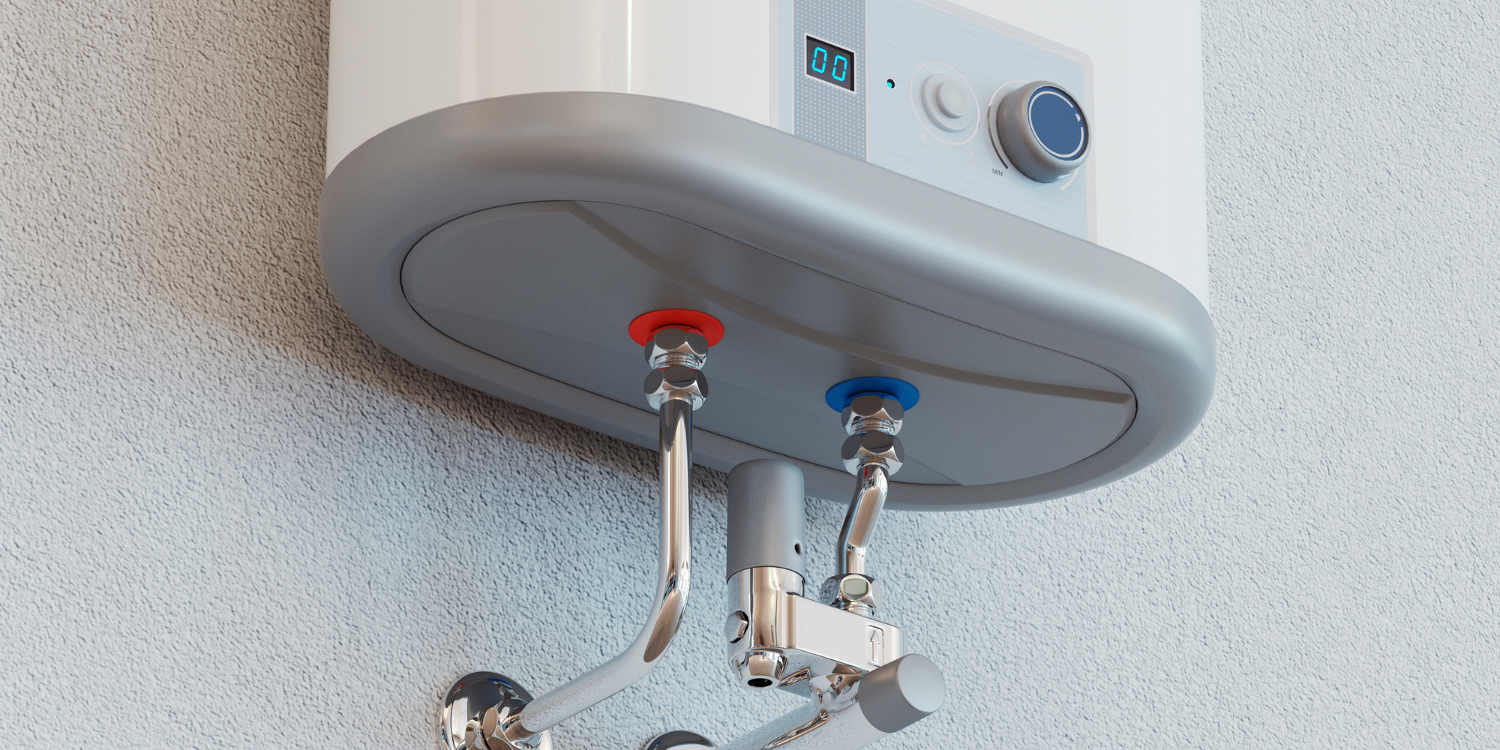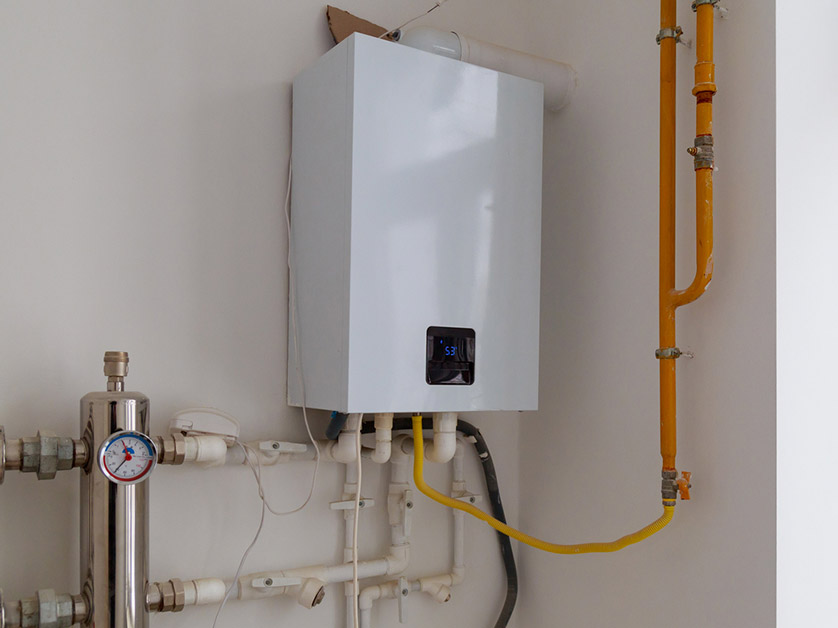Which Tankless Water Heaters Improve Homeowners’ Benefits
Which Tankless Water Heaters Improve Homeowners’ Benefits
Blog Article
This great article in the next paragraphs about Why You Should Consider a Tankless Water Heater is absolutely intriguing. Check it out for your own benefit and figure out what you think about it.

In a globe where convenience and performance reign supreme, it's not a surprise that property owners are frequently looking for smarter means to manage their home's power consumption and convenience. One technology that has continuously gained popularity is the tankless hot water heater. But exactly what makes these systems stick out from the conventional tank-based designs the majority of us matured with? Allow's dive in and explore the advantages of tankless water heaters, assisting you determine if it's time to make the button in your home.
Intro
Picture this: you enter the shower after a long day, anticipating a relaxing waterfall of hot water, just to be greeted by icy droplets due to the fact that the last person used all of it up. Sound acquainted? Traditional hot water heater store a fixed quantity of hot water, suggesting you go to the mercy of that tank's supply. Tankless systems, on the other hand, warm water as needed. No more running out mid-shower, no more wrestling with timetables simply to ensure hot water is offered.
Comprehending Tankless Water Heaters
What Are Tankless Hot Water Heater?
Tankless water heaters, often called on-demand or instant water heaters, supply warm water only as it's needed. Instead of storing gallons of pre-heated water, these systems kick into action the moment you activate the faucet. Water goes through a warm exchanger, heating up in real-time, meaning you obtain a continuous circulation of warm water without the need for a big tank resting idly by.
Exactly how Do They Differ from Traditional Systems?
Typical heating units hold a storage tank of hot water, making use of power to maintain that container at a regular temperature. Tankless devices remove the standing supply, cutting down on squandered power and the bulky footprint of a huge cylinder. Essentially, you're upgrading from a "accumulation" way of thinking to a "made-to-order" approach.
Common Types of Tankless Systems
Tankless hot water heater usually can be found in 2 selections: gas and electric. Gas models tend to deliver higher flow prices, suitable for bigger families, while electrical models typically offer smaller homes and are usually less complicated to install. In addition, some systems are developed for point-of-use (offering one fixture) while others can manage the entire home's hot water needs.
Key Advantages of Tankless Hot Water Heater
1. Limitless Hot Water Supply
Ever before needed to schedule showers so everyone gets their fair share of warm water? With tankless, that becomes a thing of the past. As long as the heater's circulation ability isn't surpassed, you can take back-to-back showers without turning into a popsicle.
2. Power Efficiency and Price Savings
Say goodbye to heating a titan tank's well worth of water and keeping it cozy all day. Tankless heating systems minimize standby power losses, which can reduce energy costs. While the initial cost may be greater, the long-lasting financial savings typically justify the financial investment.
3. Space-Saving Layout
If your home is short on storage space, getting rid of the bulky tank frees up valuable room. Tankless systems are compact and can usually be mounted on wall surfaces, stashed in corners, or set up in limited utility storage rooms without grabbing all of the whole room.
4. Longer Life-span
A well-maintained tankless hot water heater can outlast its tank-based cousin. Traditional storage tanks could last 10-15 years, while tankless models can keep downing along for 20 years or more, making them a solid financial investment over time.
5. Improved Water Top Quality
Storing water in a storage tank can in some cases cause sediment buildup or a slightly "off" taste. With tankless systems, fresh water is warmed right away, decreasing the possibilities of debris buildup and potentially providing cleaner-tasting water.
Considerations Before Switching
Though the benefits are engaging, it's wise to consider a couple of variables prior to totally dedicating.
First Financial Investment Expenses
Tankless heating units typically include a greater in advance price tag. In between the system itself and potential setup alterations, the initial price might offer you sticker shock. Yet keep in mind to see it as a long-term investment.
Installation Requirements
Depending upon your home's framework, you might require extra electric capability or gas line upgrades. Guarantee you comprehend the setup needs and seek advice from a professional to stay clear of shocks.
Assessing Your Home's Water Use Patterns
If your household all at once utilizes multiple components with high hot water need, make sure the device's circulation rate meets your requirements. Understanding your usage patterns assists you choose the ideal dimension and type of tankless heater.
Upkeep and Treatment Tips
Tankless systems are fairly low maintenance, however they aren't set-it-and-forget-it devices.
Routine Cleaning and Descaling
Hard water minerals can build up in the warmth exchanger, influencing efficiency. Normal descaling (often suggested each year) keeps the unit going for peak performance.
Annual Professional Evaluations
A yearly checkup from a professional makes certain small concerns are caught early. They'll examine the device's performance, try to find leakages, and assist keep optimal effectiveness.
Ensuring Correct Ventilation
For gas designs, correct ventilation is necessary to securely remove exhaust gases. Make certain airing vent systems are tidy and correctly set up to stop any prospective safety and security risks.
Contrasting Different Brands and Versions
Not all tankless water heaters are developed equivalent.
Researching Trusted Makers
Seek trusted brands with a background of creating top quality units. A trusted producer commonly supplies better customer support and longer service warranties.
Reviewing Testimonials and Customer Comments
User testimonials and feedback from neighbors or pals who have gone tankless can supply important understandings. In some cases, real-life experiences can be more informing than advertising sales brochures.
Installment: Do It Yourself or Expert?
While some homeowners relish taking on projects themselves, tankless setup may not be the best time to burst out the toolbox.
Advantages and disadvantages of Do It Yourself Installation
A do it yourself install could conserve cash, however it comes with threats. Inaccurate installation can lead to inadequacy or security problems. If you come in handy and have experience, it may be possible-- however wage care.
When to Call an Expert Plumbing Professional
For a lot of, calling a pro guarantees whatever's done correctly. A specialist plumbing professional recognizes regional codes, sizing demands, and venting specifications, lowering the danger of incidents.
Taking full advantage of Performance
You have actually purchased a tankless device-- currently maximize its efficiency.
Ideal Temperature Settings
The majority of people establish their units in between 120-140 F. Readjusting the temperature can improve comfort and savings. Experiment to locate a sweet spot that does not lose power.
Pairing with Low-Flow Fixtures
Want to extend your system's abilities? Take into consideration setting up low-flow showerheads and faucets. They reduce water use, enabling your tankless system to deliver a stable stream of warm water without straining.
Environmental Impact
Tankless water heaters align with greener living goals.
Decreased Carbon Footprint
By utilizing less energy and just home heating water as required, tankless systems can decrease your home's carbon footprint, minimizing your ecological influence.
Preserving Natural Resources
Much less power consumption and less lost warm water equate into less natural resources being used, an ecological win-win.
That Profits A Lot Of from Tankless Heaters?
The charm of tankless heating systems is that they can match a range of homes.
Large Households vs. Single Residents
Huge families could love the endless hot water supply, while single occupants appreciate the power financial savings from not heating up a whole tank for simply a single person's early morning shower.
House Owners with Limited Space
If your home is short on square video footage, shedding the bulky tank frees up area for various other fundamentals-- or possibly just extra elbow room.
Eco-Conscious Consumers
Going tankless aligns with eco-friendly values, ensuring you're not wasting power or resources.
Future Patterns in Tankless Water Heaters
The globe of home appliances is ever-evolving, and tankless water heaters are no exception.
Smart Home Assimilation
Imagine readjusting your hot water heater's temperature using an app or receiving upkeep signals on your phone. As clever home tech breakthroughs, we'll see more connectivity and ease.
Improvements in Modern technology
R&D is continuously enhancing warm exchangers, making devices more efficient and long lasting. Future versions could be even quieter, much more small, and much better matched for varying climates.
Verdict
Selecting a tankless hot water heater is more than just upgrading your home's warm water system; it's purchasing lasting convenience, energy efficiency, and a greener lifestyle. By considering your family's water use, bearing in mind setup needs, and committing to regular maintenance, you can delight in a steady stream of warm water without the baggage of a cumbersome storage tank. As innovation evolves, you can look forward to even smarter, more efficient tankless options that not just make your life less complicated however likewise profit the world.
Pros and Cons of Tankless Water Heaters
Tankless Water Heater Pros
Saves Energy: Simply put, you re spending less energy to create hot water, so your total carbon footprint goes down, not to mention your bills. Lasts Longer Than Storage Tanks: Storage tank units need to be replaced every 15 years or so. But tankless units? They can last for 30 years before they give out on you. Constant Hot Water: Need to take a shower and don t want the water running cold? Awesome it won t. The water will stay hot the entire time because it creates hot water on demand. Saves You Money: Less water usage equals less money. Beyond that, you re not paying to keep water hot 24/7. Those savings add up quickly. Better for the Environment: Less water waste is better for everyone. It saves you money, but it s also environmentally conscious at the same time. Tankless Water Heater Cons
It Can Take a Minute: Depending on your specific unit and its placement, it can take anywhere from 10 seconds to 2 minutes to fully heat up. Because there s no storage tank, it heats water as you need it. Upfront Purchase Price: While we talked about their longevity, there s sticker shock when you look at brand-new tankless units to install. It pays for itself, but it s still a big chunk of change at first. Has its Limits: If you run multiple appliances at once, such as the dishwasher, washing machine, and maybe you take a shower at the same time, there might not be enough hot water. https://www.airsouthnow.com/blog/water-heater-service/pros-and-cons-of-tankless-water-heaters/

I hope you enjoyed reading our article about . Many thanks for finding the time to browse our piece of content. So long as you liked our post if you please make sure you remember to pass it around. Thank you for going through it.
Click Here Report this page